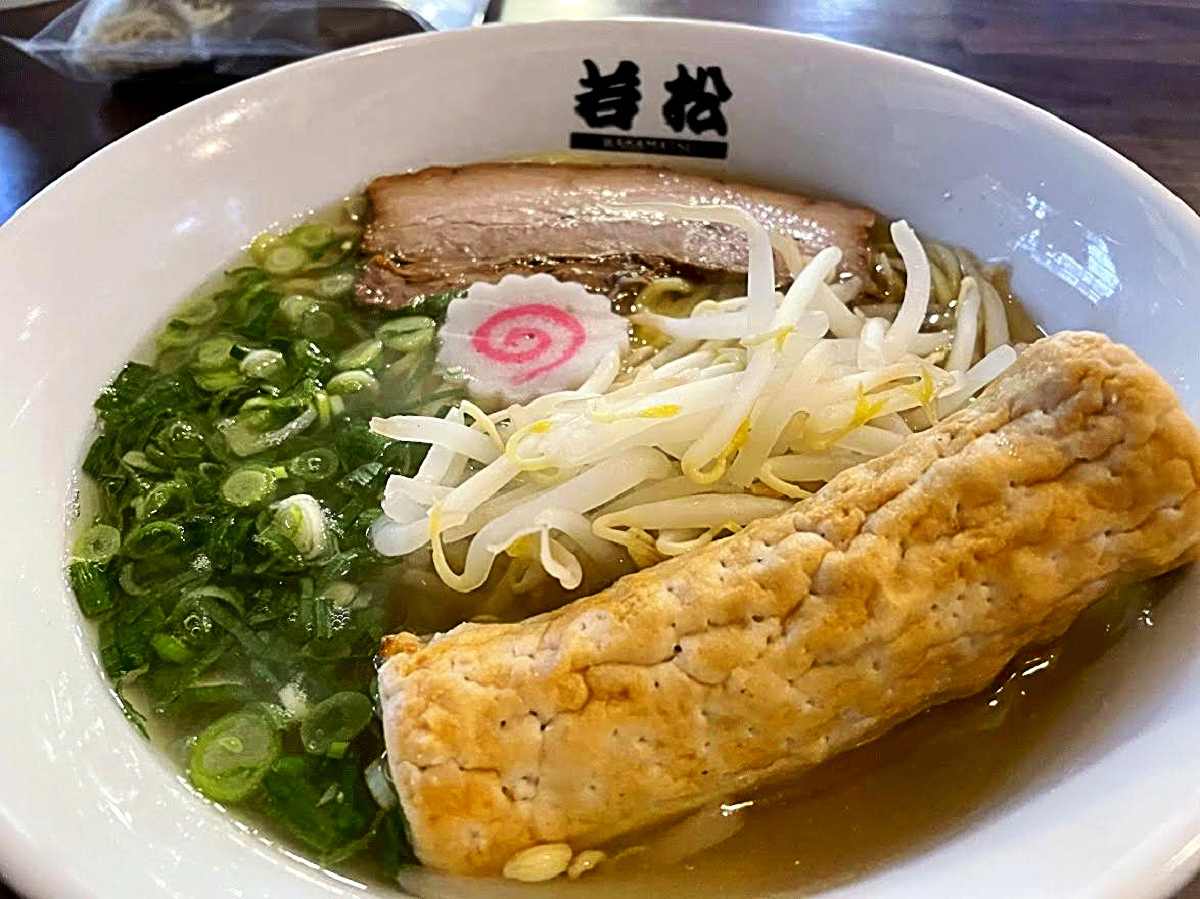ANN/THE YOMIURI SHIMBUN – With the burgeoning interest in muscle training, a wave of high-protein “muscle-building foods” has swept across Japan, catering to those seeking both athletic enjoyment and health-conscious weight management.
Yano Shoten, a well-established fish paste store in Takamatsu, has entered this market with their unique offering: “Kinniku Ramen” (muscle ramen).
These frozen noodles, a collaboration with the popular Wakamatsu ramen restaurant in the city, stand out for their inclusion of whole chikuwa – a tube-shaped fish cake – as a key ingredient.
In 2021, Yano Shoten’s President Koji Yano, aged 60, collaborated with a nutritionist to create “Muscle Chikuwa.” This innovative product is crafted from Alaska pollock fish paste infused with protein derived from nuts.
Each chikuwa weighs approximately 65 grams and boasts 16 grams of protein.
According to the Dietary Reference Intakes set by Japan’s Ministry of Health, Labor, and Welfare, women are advised to consume 50 grams of protein daily, while men should aim for 60-65 grams.
A single serving of Muscle Chikuwa fulfils between one-quarter to one-third of these recommended daily protein requirements.
Following its release, the product garnered significant attention, prompting a flood of inquiries. To date, Yano Shoten has sold over 10,000 units of Muscle Chikuwa.
People who work out hard tend to give up eating ramen noodles, especially the type served in thick and rich broth.
Yano’s 57-year-old wife Chikako thought that by “eating ramen with Muscle Chikuwa, people could take in more protein to achieve a better nutritional balance and as a result feel less guilty” about eating ramen. After hearing this idea, Yano started to develop the product.
Yano asked the owner of Wakamatsu to work with him to commercialise Muscle Ramen. The owner agreed without hesitation, and the product went on sale in April 2022.
As chikuwa absorbs ramen broth to have a deeper flavour, it is a good match for ramen. In addition, boiling chikuwa with ramen noodles helps the noodles absorb the fish-based umami of the chikuwa.
Yano and his wife guarantee the nutritional value of the ramen, saying that even those on a diet can fully enjoy eating it.
The noodles come in three flavours: a regular flavour with broth made from iriko dried fish, a rich flavour, and a spicy flavour. The price for each is JPY1,200, including tax. They are sold at the official online store.

MORE PRODUCTS FOR ATHLETES, DIETERS
There are also other products developed for athletes and dieters.
Prop, a cake shop in Harima, Hyogo Prefecture, has been selling “Protein Castilla,” a type of sponge cake usually called “castella,” since 2022. Each piece contains eight grams of protein, including supplemental protein, and is made to be relatively low in fat. The texture is similar to regular castella sponge cakes. A set of six cakes sells for JPY2,400, including tax.
The product was developed for martial arts athletes, who have strict diet restrictions, by the store’s executive director Shojiro Watanabe, 46, who used to go to a kickboxing gym, with the hope that they could enjoy a tasty snack even when they need to lose weight.
The store has received orders for the product from athletes in various sports. They in turn sent favourable responses to the store, saying that it is a relief to eat something sweet even when they are going through hard times, the shop says.
Smoothie Cafe Soleil in Soja, Okayama Prefecture, offers “Protein Pancakes,” priced at JPY840 per plate including tax.
The pancakes are made by baking a batter mixed with supplemental protein and topped with low-calorie vegetable-based cream, strawberries, nuts, and other ingredients. They contain 20 grams of protein and are made to have fewer calories than regular pancakes.
The cafe’s owner, Umi Tsukishiro, 44, also works as a personal trainer for diet improvement. She says that the pancakes are aimed at women who are interested in dieting.
“Some young women diet in unhelpful ways, like excessively restricting their food intake. I want to help them build a healthy body with nutritional support while eating delicious food,” Tsukishiro said.
MORE PEOPLE IN TRAINING
Muscle training became popular with COVID-19-related restrictions and is still going strong.
According to a survey by the Sasakawa Sports Foundation, the percentage of people aged 20 or older who do muscle training at least once a week has been on a rising trend since 2000, increasing from 4.5 per cent in that year to 13.4 per cent in 2020 at the height of the pandemic. It was 12 per cent in 2022.
In line with the boom, the market for protein-enriched foods has expanded rapidly. According to research firm Fuji Keizai Co, the domestic market is estimated to grow from about JPY62.3 billion in 2013 to JPY258 billion in 2023, more than quadrupling.


